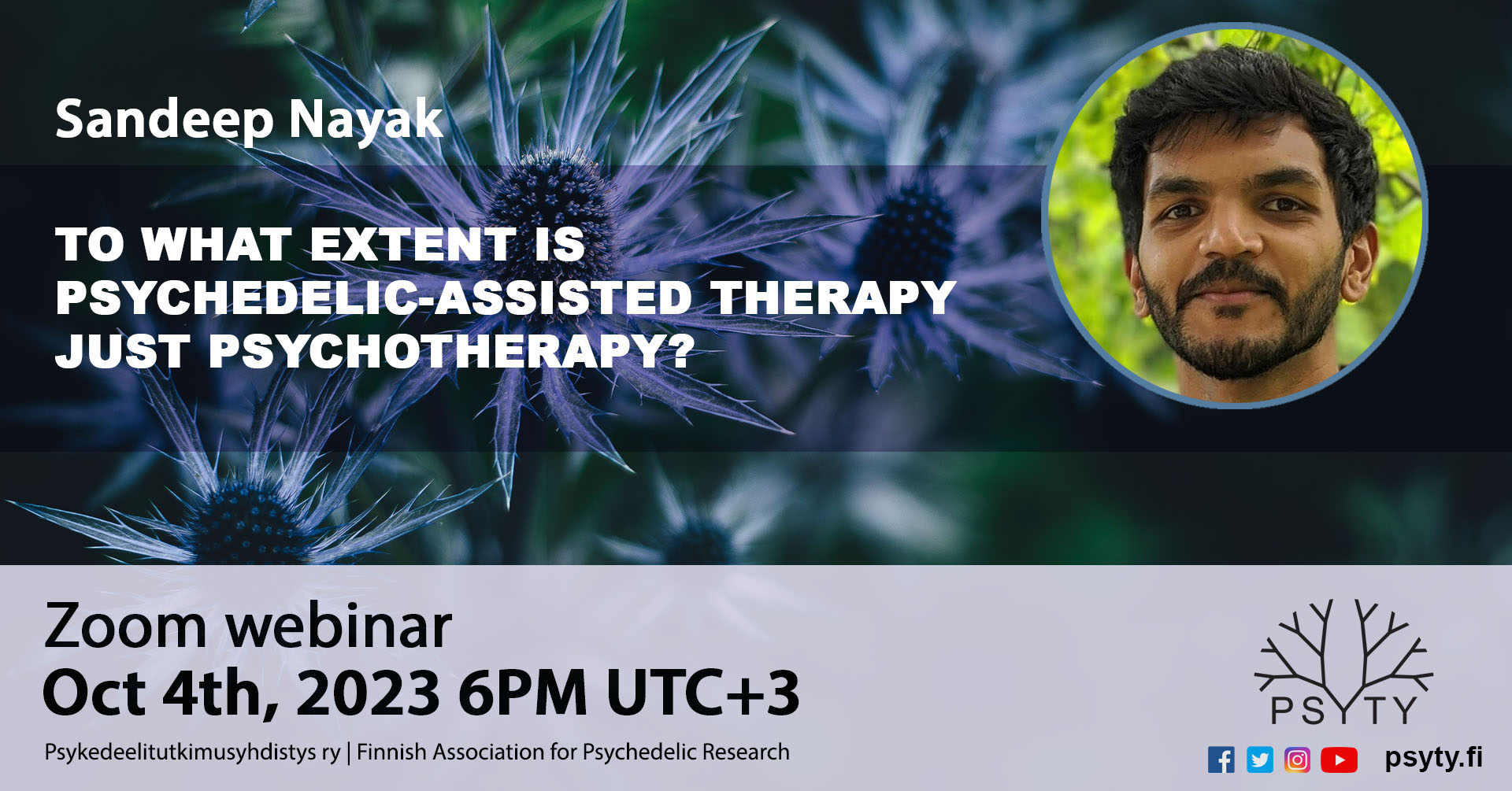Webinar October 4th 2023 | Sandeep Nayak – To what extent is psychedelic-assisted therapy just psychotherapy?

To what extent is psychedelic therapy just psychotherapy? How does psychedelic therapy relate to other forms of psychotherapy? What is psychotherapy, actually? On Wednesday October 4th at 6PM (UTC+3), we’ll dive into these questions in a webinar presentation offered by psychiatrist Sandeep Nayak, Assistant Professor at the Johns Hopkins Center for Psychedelic and Consciousness Research.
The lecture will begin by reviewing some evidence and controversy surrounding the idea that the subjective effects of psychedelic therapy are therapeutically active. Then we will discuss what psychotherapy is, and introduce the common factors of psychotherapy literature. This literature demonstrates that it is largely the shared features of psychotherapies, rather than their distinct features, that explains the bulk of therapeutic effects. Dr. Nayak will argue that psychedelic therapy, by exhibiting each common factor of psychotherapy and in some ways amplifying them, is psychotherapy. Finally, we will discuss problems of trial design methodology related to this.
The event contains a Q&A section. The total length is 2 hours.
Tickets are available from our web store. For members of the association who’ve paid their membership fee for 2023, the event is free of charge. If you want to pay your membership fee for this year or become a member, you’ll find our membership products on the main page of our web store. An email with a link for free registration to the event has been sent to members of the association. If you’re not sure if you’ve paid for your membership this year, feel free to ask us.
Sandeep Nayak is a psychiatrist and Assistant Professor at the Johns Hopkins Center for Psychedelic and Consciousness Research. He completed his MD at Brown University and his psychiatry residency at Johns Hopkins Hospital. He’s primarily focused on investigating psychedelics as treatments for psychiatric conditions, particularly substance use disorders and mood disorders.

Comments are Disabled